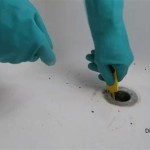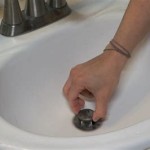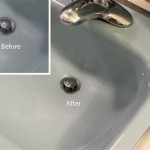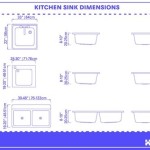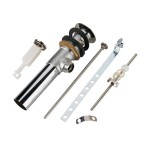Smelling Sewer Gas in Your Bathroom Sink: Causes and Solutions
The presence of sewer gas, also known as hydrogen sulfide, in your bathroom sink is a common problem that can be quite unpleasant. This foul-smelling gas can indicate potential issues within your plumbing system, and it is crucial to address it promptly. While the smell itself is a nuisance, it can also pose health risks. This article explores the common causes of sewer gas in bathroom sinks, the potential health risks involved, and the steps you can take to resolve the problem.
Causes of Sewer Gas in a Bathroom Sink
Sewer gas can enter your bathroom sink through various pathways, and identifying the source is crucial for resolving the issue. Common causes include:
1. Dry P-Trap
A P-trap is a curved section of pipe located beneath your sink. It contains a small amount of water that acts as a seal, preventing sewer gas from entering your home. If the P-trap dries out, the seal is broken, allowing sewer gas to escape. This can happen due to infrequent use of the sink, low water pressure, or leaks in the P-trap.
2. Vent Stack Issues
Every plumbing fixture requires proper ventilation. Vent stacks are pipes that extend from your plumbing system to the roof, allowing air to flow freely and prevent pressure buildup. If the vent stack is blocked or damaged, it can disrupt the air pressure balance, leading to sewer gas entering your sink drain.
3. Cracked or Broken Pipes
Over time, plumbing pipes can become brittle and develop cracks or breaks. These openings can allow sewer gas to seep into the plumbing system and escape through your bathroom sink.
4. Roof Vent Issues
The vent stack on your roof should be properly sealed and maintained. If it becomes damaged or blocked, it can lead to a buildup of pressure within the plumbing system, forcing sewer gas into your bathroom sink.
5. Improperly Sealed Connections
Connections between different plumbing components, such as pipes and fixtures, should be tightly sealed. If these connections are loose or damaged, sewer gas can leak into your bathroom sink.
Health Risks Associated with Sewer Gas
Exposure to sewer gas can pose various health risks, particularly in enclosed spaces. The gas contains hydrogen sulfide, a toxic substance that can cause:
• Respiratory problems:
Sewer gas can irritate the respiratory system, leading to coughing, wheezing, and shortness of breath. In extreme cases, prolonged exposure can lead to lung damage.• Eye irritation:
The gas can irritate the eyes, causing burning sensations, redness, and watering.• Nausea and vomiting:
The strong odor of sewer gas can trigger nausea and vomiting. Inhaling significant amounts of the gas can result in dizziness and headaches.• Neurological effects:
Sewer gas contains other toxic compounds that can affect the nervous system, leading to confusion, disorientation, and memory problems.Solutions for Sewer Gas in Bathroom Sink
Addressing sewer gas in your bathroom sink requires a multi-pronged approach. Here are some solutions:
1. Replenish the P-Trap
The simplest solution is to pour a cup of water down the sink drain to replenish the P-trap. This will create a seal and prevent further sewer gas from entering your bathroom.
2. Check for Leaks
Inspect the P-trap for any signs of leaks or cracks. If necessary, replace the P-trap with a new one.
3. Inspect Vent Stacks
Ensure that all vent stacks are clear and unobstructed. If you notice any blockages, you may need to call a plumber to address the issue.
4. Check for Roof Vent Issues
Inspect the vent stack on your roof for damage or blockages. If you find any issues, contact a roofing professional for repairs.
5. Inspect and Reseal Connections
Thoroughly inspect all plumbing connections for looseness or damage. If necessary, use plumber's tape or sealant to ensure tight connections.
6. Professional Inspection and Repair
If you are unable to identify the source of the sewer gas or if the problem persists, it is important to call a licensed plumber for inspection and repair. They can identify any underlying plumbing issues and recommend the most appropriate solutions.

How To Get Rid Of The Sewer Smell From A Bathroom Terry S Plumbing

Bathroom Sink Drains With A Bad Smell Causes Measures George

What Causes A Sewer Smell In The Bathroom Make It Right

How To Clean A Stinky Sink Drain Home Repair Tutor

Why Does Bathroom Smell Like Sewage Crystal Blue

Why Does My Bathroom Sink Smell How Do I Resolve It

Sewer Smell In Bathroom A Master Plumber Explains What To Do

Finding And Curing Plumbing Odors Fine Homebuilding

Sewer Odor As A Sign Of Issues What To Do When You Smell In Your House Nw

Bathroom Sink Drain Smells Bad Get Rid Of Odor
